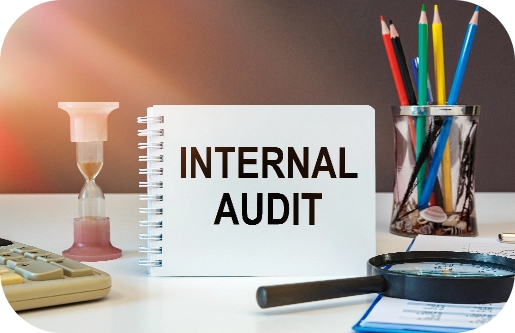


Statutory Audits are mandatory financial audits conducted by independent, external auditors to ensure the accuracy and integrity of a company's financial statements and records. These audits are required by law or regulation and aim to provide assurance to stakeholders, such as shareholders, investors, regulators, and the public, that the company's financial information is reliable and transparent.
Concurrent Audits are real-time, ongoing audits conducted within an organization to provide continuous assurance on the accuracy of financial transactions and internal controls. Unlike traditional audits that are performed periodically, concurrent audits are conducted simultaneously with daily operations.


Stock Audits, also known as inventory audits, are examinations of a company's physical stock or inventory to verify its accuracy and reconcile it with the records in the books. These audits help organizations ensure that the physical stock matches the reported quantities and values, and they play a crucial role in maintaining accurate financial reporting and efficient inventory management.
Revenue Audits, also known as sales audits or income audits, are thorough examinations of a company's financial records and transactions related to revenue generation. These audits focus on verifying the accuracy of reported revenue figures, ensuring compliance with tax regulations, and identifying potential discrepancies or irregularities.


Expenditure Audits, also known as expense audits or spending audits, are comprehensive examinations of a company's financial records and transactions related to expenditures. These audits focus on assessing the accuracy, legitimacy, and efficiency of expenses incurred by the organization.
Branch Audits involve the examination of the financial and operational activities of a branch or subsidiary of a company. These audits ensure that the branch's operations are in compliance with company policies, financial regulations, and industry standards. The goal is to provide accurate and reliable information about the branch's performance and financial position.


A Forensic Audit is an in-depth examination of financial records, transactions, and activities with the goal of uncovering fraud, financial mismanagement, and other irregularities. It involves detailed analysis and investigation to collect evidence that can be used in legal proceedings or internal actions.
Internal Audits are systematic and independent examinations of an organization's operations, processes, and controls. They provide valuable insights into an organization's risk management, governance, internal controls, and operational efficiency. Internal Audits are conducted by an Internal Audit department or team within the organization.


An Operations Audit is a comprehensive evaluation of an organization's operational processes, procedures, and practices. This audit assesses the efficiency, effectiveness, and alignment of operations with organizational goals and industry best practices.